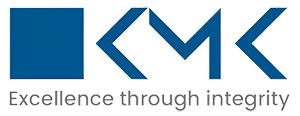Accounting for Restaurants: Best Practices and Software Tools

Running a successful restaurant goes beyond delicious food and exceptional service—it requires robust financial management. In a fast-paced, low-margin industry like hospitality, precise accounting can make the difference between thriving and barely surviving. This blog explores best practices in restaurant accounting and the modern tech stack that helps restaurateurs manage their finances efficiently.
Why Accounting is Critical in the Restaurant Industry
The restaurant business operates on tight margins, typically ranging from 3% to 5%. With such narrow profit margins, even minor missteps in budgeting, cost control, or compliance can have significant financial consequences. Proper accounting provides insight into:
- Cash flow management
- Inventory control
- Labor cost optimization
- Tax compliance
- Financial forecasting
By staying on top of their financials, restaurant owners can make data-driven decisions and grow their businesses sustainably.
Best Practices in Restaurant Accounting
Use the Right Accounting Method
Restaurants typically choose between:
- Cash Accounting – Revenue and expenses are recorded when received or paid. It is simpler and suitable for small restaurants.
- Accrual Accounting – Revenue and expenses are recorded when earned or incurred. More accurate for tracking long-term performance.
Separate Business and Personal Finances
One of the most common mistakes among restaurant owners is mixing personal and business expenses. To maintain clean books and prepare for tax season:
- Open a dedicated business bank account.
- Use a business credit card.
- Set up a proper payroll to pay yourself as an employee.
Track Every Revenue Stream
Restaurants often have multiple revenue channels—dine-in, delivery, catering, online orders, merchandise. It’s vital to:
- Set up separate revenue accounts.
- Track sales by channel for profitability insights.
- Utilize point-of-sale (POS) systems that are integrated with accounting tools.
Manage Cost of Goods Sold (COGS) Precisely
Cost of Goods Sold (COGS) is one of the most significant expenses in a restaurant. To manage it well:
- Perform weekly inventory counts.
- Use first-in, first-out (FIFO) for inventory valuation.
- Analyze food waste regularly.
- Monitor supplier pricing and renegotiate if necessary.
Control Labor Costs
Labor is often the second most significant cost. Best practices include:
- Schedule staff based on sales forecasts.
- Monitor overtime and compliance with labor laws.
- Integrate time-tracking systems with payroll software.
Automate Daily Sales Reconciliation
Daily sales should be reconciled against bank deposits and POS data. Automating this helps:
- Detect theft or discrepancies early.
- Track tips and taxes properly.
- Maintain accurate financial records.
Prepare Regular Financial Statements
Generate and analyze key financial reports:
- Profit & Loss (P&L) – Understand revenues vs. expenses.
- Balance Sheet – Evaluate assets, liabilities, and equity.
- Cash Flow Statement – Monitor cash movements.
Review these monthly (at minimum) with your accountant or bookkeeper.
Budget and Forecast
Develop monthly and annual budgets that include:
- Fixed costs (rent, insurance)
- Variable costs (food, labor)
- Seasonal trends
- Marketing spend
Use historical data to forecast revenue and prepare for lean periods.
Stay Tax Compliant
Restaurants have complex tax obligations, including:
- Sales tax
- Payroll tax
- Tip Reporting
- 1099s for contractors
Utilize automated tax software and hire a CPA who is knowledgeable about restaurant regulations.
Outsource When Necessary
If you’re not a numbers person, outsource bookkeeping and accounting to professionals. This ensures:
- Accurate financial records
- Timely tax filings
- Strategic financial advice
The Restaurant Accounting Tech Stack
Modern restaurants rely on an integrated technology stack to manage financial operations seamlessly. Here’s a breakdown of essential tools:
Point of Sale (POS) Systems
A POS is the nerve center for tracking sales and customer transactions. Key features include:
- Real-time reporting
- Inventory tracking
- Employee time clock
- Tip management
Popular POS tools:
- Toast
- Square for Restaurants
- Lightspeed
Accounting Software
Accounting platforms help track income expenses and generate financial reports. Ideal systems integrate with your POS and bank accounts.
Top choices:
- QuickBooks Online – Industry standard, user-friendly, with POS and payroll integration.
- Xero – Strong automation and reporting capabilities.
- Restaurant365 – Built specifically for restaurants, includes AP automation, P&L analysis, and scheduling.
Inventory Management Tools
Inventory tools help control food costs and reduce waste by monitoring stock levels and usage rates.
Top options:
- MarketMan
- xtraCHEF (by Toast)
- BlueCart
- BevSpot – Great for bar inventory.
Payroll & Labor Management
Managing staff schedules, wages, and compliance can be streamlined with dedicated tools.
Leading platforms:
- Gusto – Full-service payroll with benefits and HR tools.
- ADP – Comprehensive, scalable for multi-location restaurants.
- 7shifts – Labor scheduling and workforce analytics.
Expense Management
Track bills, receipts, and vendor payments efficiently and accurately.
Useful apps:
- Expensify
- Ramp
- Bill.com
Sales Tax and Tip Management
Restaurants must manage sales taxes and track employee tips accurately to avoid audits and penalties.
Helpful tools:
- Avalara – Automates sales tax calculation and filing.
- QuickBooks Payroll – Handles tip allocation and tax withholdings.
Reporting & Business Intelligence
Turn raw data into actionable insights. Use dashboards and reporting tools to track KPIs like:
- Food cost percentage
- Labor cost percentage
- Table turnover rate
- Average order value
BI tools:
- Avero
- Restaurant365
- PowerBI
Read Also: How Outsourced Accounting for Restaurants Helps U.S. Businesses Cut Costs
Final Thoughts:
In the high-pressure world of hospitality, innovative accounting practices are just as important as kitchen operations. Leveraging the right tech stack ensures you’re not buried in spreadsheets but instead focused on growth, profitability, and customer experience.
As competition intensifies and margins narrow, those who invest in robust financial infrastructure will not only survive but also thrive.
How KMK Can Help
At KMK, we specialize in providing tailored accounting and financial management solutions specifically designed for the restaurant industry. Whether you’re a single-location eatery or a growing multi-unit chain, our team understands the unique challenges you face—from managing tight margins and labor costs to staying compliant with ever-changing tax regulations. We offer end-to-end support, including bookkeeping, payroll, sales tax filing, inventory analysis, and financial reporting, all powered by the latest industry-leading technology tools. By partnering with KMK, you get more than just accounting—you gain a strategic financial partner committed to helping your restaurant grow profitably and sustainably.
To explore how we can support your restaurant’s financial success, reach out to us at info@kmkventures.com to schedule a free consultation. Let KMK help take your business to the next level.
 Harshvardhan Kothari is a qualified Chartered Accountant from the Institute of Chartered Accountants of India (ICAI) with over five years of post-qualification experience in accounting, financial management, and compliance. He possesses in-depth expertise in U.S. accounting practices, with a strong focus on maintaining regulatory standards and ensuring fiscal transparency. Known for his meticulous attention to detail and results-oriented approach, Harshvardhan has successfully managed and overseen complex financial operations, driving efficiency and delivering measurable outcomes across various business functions. Outside of his professional role, Harshvardhan is an avid sports enthusiast who enjoys playing cricket and table tennis.
Harshvardhan Kothari is a qualified Chartered Accountant from the Institute of Chartered Accountants of India (ICAI) with over five years of post-qualification experience in accounting, financial management, and compliance. He possesses in-depth expertise in U.S. accounting practices, with a strong focus on maintaining regulatory standards and ensuring fiscal transparency. Known for his meticulous attention to detail and results-oriented approach, Harshvardhan has successfully managed and overseen complex financial operations, driving efficiency and delivering measurable outcomes across various business functions. Outside of his professional role, Harshvardhan is an avid sports enthusiast who enjoys playing cricket and table tennis.
Let’s Take Our Conversation Ahead
KMK is a top outsourced accounting and tax service provider. We offer end-to-end accounting and tax services for small to mid-sized businesses, with a team of 875+ professionals, including certified public, chartered, and staff accountants.
USA:
651 N Broad St Suite 205, Middletown, DE 19709, USA
Phone: 310-362-2511
India:
300, Sankalp Square-3B
Sindhu Bhavan Marg,
Ahmedabad, Gujarat 380058
For Career: 91-98240-42996
Developed by Bluele | Copyright © 2025 | KMK Ventures Private Limited. | All Rights Reserved


